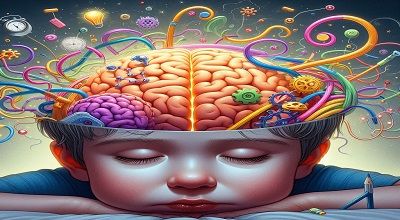Brain Developments
Ages 2-7, often referred to as the early childhood years, are crucial for brain developments due to several factors that make this period a sensitive and formative time in a child’s life. Here are some of the key reasons why these years are so significant for brain development:
Rapid Brain Growth: During the early years of life, the brain experiences significant growth and development. This period is characterized by rapid synaptogenesis, which is the formation of connections between neurons (brain cells). These connections are the foundation of learning and cognitive development.
Plasticity and Adaptability: The brain is highly plastic during this time, which means it can adapt and change in response to experiences and environmental influences. This plasticity enables children to learn and acquire new skills more easily, making it a critical time for the development of various cognitive, motor, and social abilities.
Language Development: The early childhood years are when children typically start to acquire language skills. This period is particularly sensitive to language development, and children’s brains are highly receptive to language input. The quality and quantity of language exposure during this time can have a profound impact on a child’s language skills later in life.
Social and Emotional Development: Early childhood is a critical period for the development of social and emotional skills. Children learn to regulate their emotions, form relationships, and understand the feelings and perspectives of others. These abilities lay the foundation for later social and emotional well-being.
More Read…
Executive Function and Self-Regulation: The prefrontal cortex, a region of the brain responsible for executive functions like planning, impulse control, and decision-making, undergoes significant development during these years. The development of executive function is crucial for a child’s ability to focus, control impulses, and set and achieve goals.
Sensory and Motor Development: Early childhood is a time when sensory and motor skills, such as fine and gross motor skills, are rapidly developing. These skills are essential for a child’s ability to explore their environment, engage in physical activities, and interact with the world.
Early Learning Foundations: The knowledge and skills acquired during this period serve as the foundation for future learning. Literacy and numeracy skills, as well as a curiosity for exploring the world, are established during these years, setting the stage for future academic achievement.
Environmental and Experiential Influences: The quality of a child’s environment and experiences during early childhood has a profound impact on brain development. Positive, nurturing, and stimulating environments contribute to healthy brain development, while adverse experiences or neglect can have long-term negative effects.
Summary
It’s important to note that while ages 2-7 are a critical period for brain developments, the brain remains adaptable and capable of change throughout a person’s life. However, the early childhood years are a unique and sensitive time when the brain is particularly receptive to a wide range of experiences and influences that shape a child’s future cognitive, emotional, and social development. Therefore, providing a supportive and enriching environment during this period is essential for fostering healthy brain developments.
